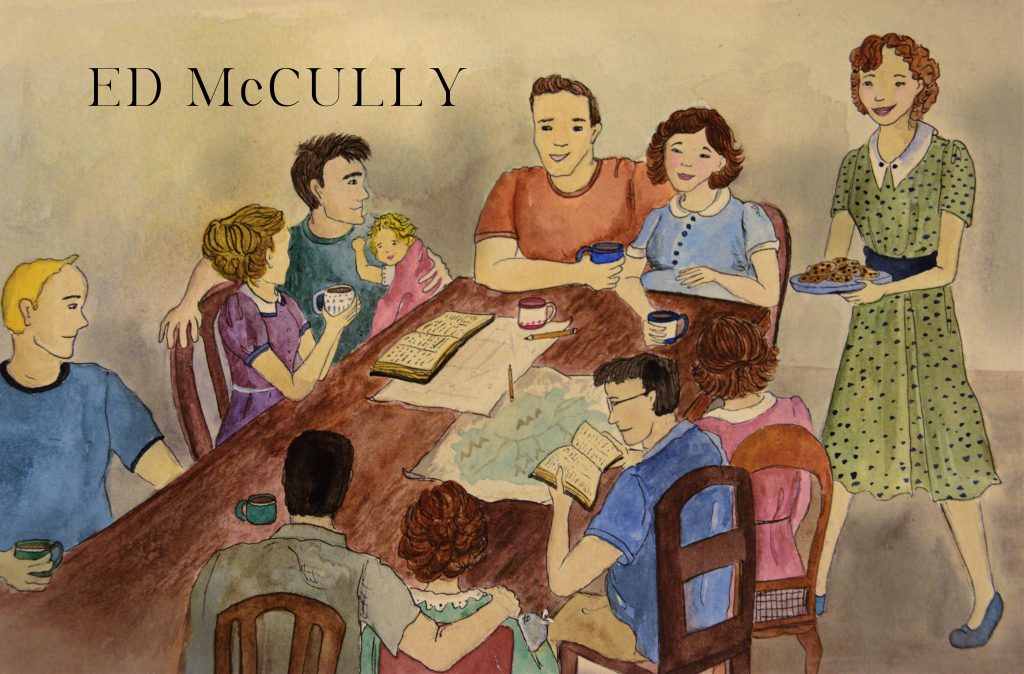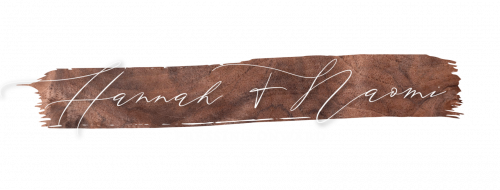(June 1, 1927 – January 8, 1956)
In September 1955, three young men joined forces in what they called ‘Operation Auca’. They were Jim Elliot, Ed McCully and Nate Saint. God had been working separately in each man’s heart and each felt called to pursue this new and dangerous endeavor of taking the Gospel to these people for the first time in history. They learned all they could about the Aucas from the Indians and an escaped Auca woman, Dayuma.
They studied previous outsider attempts and why they had failed. The Auca were savage people known for their unpredictable habits, unique killing strategy and fear of the white man. The pioneer missionaries were not afraid, but they wanted to be wise in their dealings with these people.
Ed began to visit the Indians and conduct meetings at Arajuno, an abandoned Shell Oil Company base at the very edge of Auca territory. His welcome was so great that he decided to move Marilou and their two sons to a home located on the Auca’s side of the Arajuno River.
Ed and Nate often flew over the Auca territory looking for a glimpse of Ed’s ‘neighbors’. One day they spotted fifteen clearings and a few houses. As the men took turns flying with Nate, they continued to find more and more Auca establishments. They felt it as a sign from the Lord that now was the time to do something about it. It was agreed that they would keep their discoveries ‘in the family’ for the time being and to continue to pray about and discuss the matter.
Over cups of hot cocoa the five men and their wives would stay up late into the night, sharing thoughts, comparing notes and brainstorming approaches. Their first step would be to learn Auca phrases from Dayuma, then they would perform regular gift-drops over a period of time –– their first attempt at friendly contact.
On October 6, 1955, Nate and Ed made the first gift-drop; an aluminum kettle filled with bright buttons and strewn with brightly colored streamers. Nate wrote in his diary, “It was Ed’s first look at his ‘neighbors’, and he was plenty keyed up about it.”
On the 14th, with Nate piloting the Piper, and Ed ‘glued to his binoculars’, the men were in for a surprise! From Nate’s account of that memorable day, “All of a sudden he (Ed) let out a yell and all but crawled out the open door to get a better look. We were seeing our first Auca! Our hearts were grateful. We had not hoped to see this for perhaps months. . . They are as animated, in one way or another, about this thing as we are.”
On the fourth flight, Nate rigged up the plane with a battery-powered loudspeaker. As they approached the clearings, Jim called out in the Aucan language, “I like you! I am your friend!” Then they dropped their gifts to the waving and dancing people below.
Ed wrote after a contact, “No fear was manifest today, even when the plane was down low. . . the plane gets close, but somehow one longs to get closer. No sign of malice or anger. No lances seen. I f there was a ladder to get down from the plane to them it would seem a safe and good thing to go out among them.”
With each via the sky ‘visit’, the Aucas came across as friendly and even began to send up their own gifts. Ed wrote, “A real answer to prayer; another sign to proceed, and an encouragement that friendly relations are possible and that they will hear the Gospel!”
When a missionary to the another Indian tribe, the Ashtuaras, Roger Youderian joined ‘Operation Auca’ as the badly needed fourth man, it seemed that nothing more was lacking. God was answering prayers.
On December 3, Ed wrote to Jim, “The whole project is moving faster than we had originally dared to hope, and while I’m not for getting ahead of God, I feel that we shouldn’t lag.”
Over the next few months, the couples continued to meet and plan in earnest. They drew up a plan of the operation and distributed responsibilities. Ed was in charge of collecting items for trade with the Aucas.
The D-day was set for Tuesday, January 3, 1956. Elizabeth Elliot wrote, “It was a time for soul searching, a time for counting the possible cost.”
By New Years Day, 1956, Pete had decided to go and wholeheartedly joined in the final preparations. At last three of the men, their treehouse and necessary items were delivered by the Piper at Palm Beach. While camp was being set up, Nate flew over the Auca neighborhoods, Terminal City, calling out, “Come tomorrow to the Curaray!”
On Wednesday and Thursday the men passed the time writing letters home, pacing the beach calling out Auca phrases, reading and soaking in the river to escape the many flying insects. Daily, Nate flew over Terminal City and called to the Aucas standing below.
At about 11:00 on Friday, as the men called out their phrases, they were shocked to hear a man’s voice respond from the trees. He appeared followed by two women. The missionaries found their voices and shouted, “Puinani! . . . Welcome!”
Jim slowly waded to the Aucas on the other side of the river and led them across by hand. The visitors were curious about everything and jabbered in their native tongue. The man who was dubbed ‘George’ showed his eagerness to ride in the plane, and while doing so, called excitedly to his fellow Aucas. When Nate and George returned from their memorial flight, the five men gave thanks to their Father.
Towards evening the younger woman began acting strange and soon left, followed by George. The older woman spent most of the night on the beach, but was gone by morning.
Saturday came and went without contact. Ed wrote to Marilou, “Dearest Baby, It’s 4:30 and no sign of visitors yet but we believe they’ll arrive, if not tonight, then early tomorrow. We’ll have to wait and see how God leads us, and them, too. . . all my love, Ed.”
Sunday morning after the men enjoyed ice cream and blueberry muffins fresh from Marilou’s oven, Nate flew over Terminal City. On the way back, he spotted 10 men on their way to Palm beach. As he landed on Palm Beach he called out to the others, “This is it, guys! They’re on the way!”
At radio contact at noon, Nate told Marj, “Looks like they’ll be here in time for the early afternoon service. Pray for us. This is the day! Will contact you next at four-thirty.”
But at the appointed time, as Marj switched on the radio receiver, silence reigned. She contacted the other wives and all five waited and prayed. By the next morning, news was getting out fast and a search from air as well as prayers all across the world were set in motion. J ohnny Keenan, Nate’s flight colleague, recognized the Piper mutilated with all its fabric ripped off. There was no sign of the missionaries.
An on ground rescue set out into the jungle and continued to search over the next weeks in addition to the plane’s continued hovering. After a thorough search, four of the men’s bodies were found at different points of the river. Ed’s body had been identified the previous day by an Indian convert who took his watch and a tremendous shoe.
As the young men’s remains were buried a tropical storm let loose. Prayers were said as fellow missionaries looked upon the bodies of their friends for the last time.
Their friends and wives did not immediately know what had happened between Friday and Sunday. Over the days of agony and waiting, the women’s hearts were strengthened by the promises of God, by the memories of their husbands’ willingness to die in His name and the knowledge that they were with their Savior.
They knew that God’s plan was perfect and ‘for the good of those who love Him’. The story of their martyr husbands was already making its mark in the world. Their sacrifice was not in vain.
When Rachel Saint and Elizabeth Elliot lived among the Aucas two years later they heard more of the tragic account. The young men had been attacked by a party of six Auca warriors and three women. After a desperate struggle, Ed was the fourth of the five men to be speared.
Elizabeth summed up the response of the widow’s hearts, “We know that it was no accident. God performs all things according to the counsel of His own will. The real issues at stake on January 8, 1956, were far greater than those which immediately involved five young men and their families, or this small tribe of naked ‘savages’.
Letters from many countries have told of God’s dealings with hundreds of men and women, through the example of five who believed literally that “the world passeth away and the lust thereof: but he who doeth the will of God abideth for ever. . . Thou art worthy for Thou wast slain and hast redeemed us to God by Thy blood out of every kindred, and tongue, and people, and nation. ”
We rest on Thee, our Shield and our Defender;
We go not forth alone against the foe;
Strong in Thy strength, safe in Thy keeping tender.
We rest on Thee, and in Thy Name we go.
Yea, in Thy Name, O Captain of salvation!
In Thy dear Name, all other names above;
Jesus our Righteousness, our sure Foundation,
Our Prince of glory and our King of love.
We go in faith, our own great weakness feeling,
And needing more each day Thy grace to know:
Yet from our hearts a song of triumph pealing;
We rest on Thee, and in Thy Name we go.
We rest on Thee, our Shield and our Defender:
Thine is the battle, Thine shall be the praise
When reigning in the Kingdom of Thy splendor;
Victors, we rest with Thee, through endless days.
This hymn is one of the last ones these five brothers in Christ sang before they passed into the glorious presence of their Eternal King and Faithful Lord. May we see Him as worthy of every part of our lives, may we be found laboring, faithful unto death.
To read more about Ed McCully and the other four young men, buy this amazing book by Elisabeth Elliot: Through Gates of Splendor – Elisabeth Elliot




